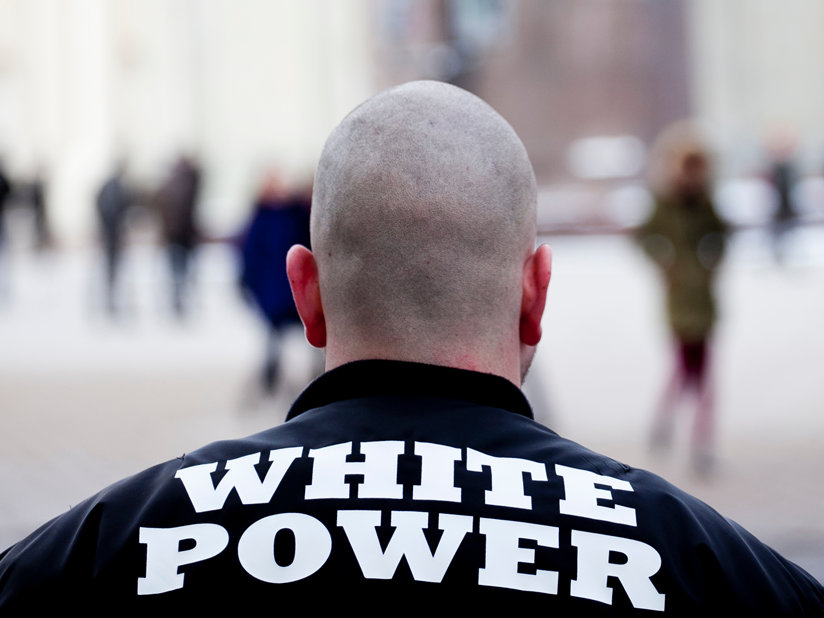
-
HOME
-
WHAT IS STANDOur Mission Our Values Our Help Contact
-
WHAT WE FIGHT FORReligious Freedom Religious Literacy Equality & Human Rights Inclusion & Respect Free Speech Responsible Journalism Corporate Accountability
-
RESOURCESExpert Studies Landmark Decisions White Papers FAQs David Miscavige Religious Freedom Resource Center Freedom of Religion & Human Rights Topic Index Priest-Penitent Privilege Islamophobia
-
HATE MONITORBiased Media Propagandists Hatemongers False Experts Hate Monitor Blog
-
NEWSROOMNews Media Watch Videos Blog
-
TAKE ACTIONCombat Hate & Discrimination Champion Freedom of Religion Demand Accountability
“Educated” Hate—Like That of NY Times’ Amanda Hess
I remember a Christmas party I went to in high school. I had made a joke everyone loved and the hostess, still chortling, put a solicitous hand on my shoulder and laughed, “And you’re Jewish, aren’t you!”
What was I supposed to do with that?
If I complained, the offender would have said: no harm meant at all. It was a compliment! You’re soooo sensitive. And dramatic! Here, have some wine—you people like that, right?
And so it begins. First it starts with “othering”—the easy practice of distancing oneself and one’s group or religion from “them.” Then come the jokes, the nicknames, the wounded look of surprise at the very thought of being accused of hatred or prejudice. Then come the code words: Zionist. Privilege. Uppity. Then the scapegoating and the blame.

More recently I, the sole Scientologist present, was engaged in a lively discussion on current events with family and friends. I voiced an intelligent observation (I thought) to which an acquaintance said, “Well, that’s how all you people feel, so it makes sense that you would say that.” Since the group was mixed and the hour late, I simply said, “No, that’s how I feel. I can’t speak for the rest of ‘my people.’” The comment was lost in the chatter. But later on, when that same acquaintance prefaced a comment with, “Well, I really shouldn’t say this,” I cut in with, “Then don’t.”
Trevor Noah, who grew up during apartheid in his native South Africa, once observed that he actually missed that bigoted system. At least then, you knew where you stood; the signs read: “NO BLACKS!” In America, he noted, no one except the nuts admit they out and out hate.
Of course. Hate is for nasty, crazy, skin-headed, torch-carrying, tattooed white supremacist fiends. “Hate,” thus, lets most of us off the hook.
Hess, instead of doing her homework, leans on Wright, a paid bigot.
When someone implies that instead of an untidy emotion such as “hate” one simply has reservations about the minority group, a permissible sense of doubt about that group materializes among the listeners, breeding agreement, and with that agreement, actions and thoughts of superiority. This is not hatred, but something more covert: contempt, “the feeling that a person or a thing is beneath consideration, worthless, or deserving scorn.”
One can manifest contempt through smiling indulgence, polite dismissiveness, charming wit, or by simply mispronouncing the target’s name, to name just a few ways. But British writer Eva Wiseman, who is a Jew, observed in a recent article that anti-Semitism is anti-Semitism, whether it’s a skinhead screaming “Jews will not replace us!” in a Charlottesville torch parade or whether it’s a writer cooing about Jews’ “dusky exoticism” and “charming neuroses.” Though the writer won’t get arrested for clucking about the stereotypes “everyone knows” about Jews, there is still a family resemblance between her and the tattooed Nazi with the assault rifle. The reason?

Her “harmless” antics open the door to the more vicious and overt attacks. Wiseman cites Wiley, a British rapper whose recent anti-Semitic tweets calling for Jews to be shot and comparing them to snakes, stayed on social media a good long time before finally being taken down by Twitter.
And so the spiral winds downward for Jews, African Americans, Muslims, Scientologists and any minority, aided by wit, winking and wariness, as it descends and devolves into hostility and harm.
Exhibit A: Critic-At-Large Amanda Hess, opting for the dangerously lazy but fashionable path of otherness, quotes discredited anti-Scientology propagandist Lawrence Wright in a recent New York Times article that isn’t even about the Church of Scientology. Hess, instead of doing her homework, leans on Wright, a paid bigot whose anti-Scientology canards have fostered threats on Scientology churches and members, and have empowered other frothing bigots like Leah Remini and Tony Ortega.
Yes, chatty little “everyone-knows” assertions can develop into virulent violent acts of rage with the turn of a page, the click of a mouse, the frown of a doubt. So yes, let’s talk about hate. Or, on second thought, let’s not. Let’s talk about not-hate. The use of the word “hate” lets far too many people go (“Tsk. Not me.”). It’s too easy to say, “Goodness gracious, I don’t HATE those people. I just would rather my kids went to a ‘better’ school, if you know what I mean.”
We know exactly what you mean.









